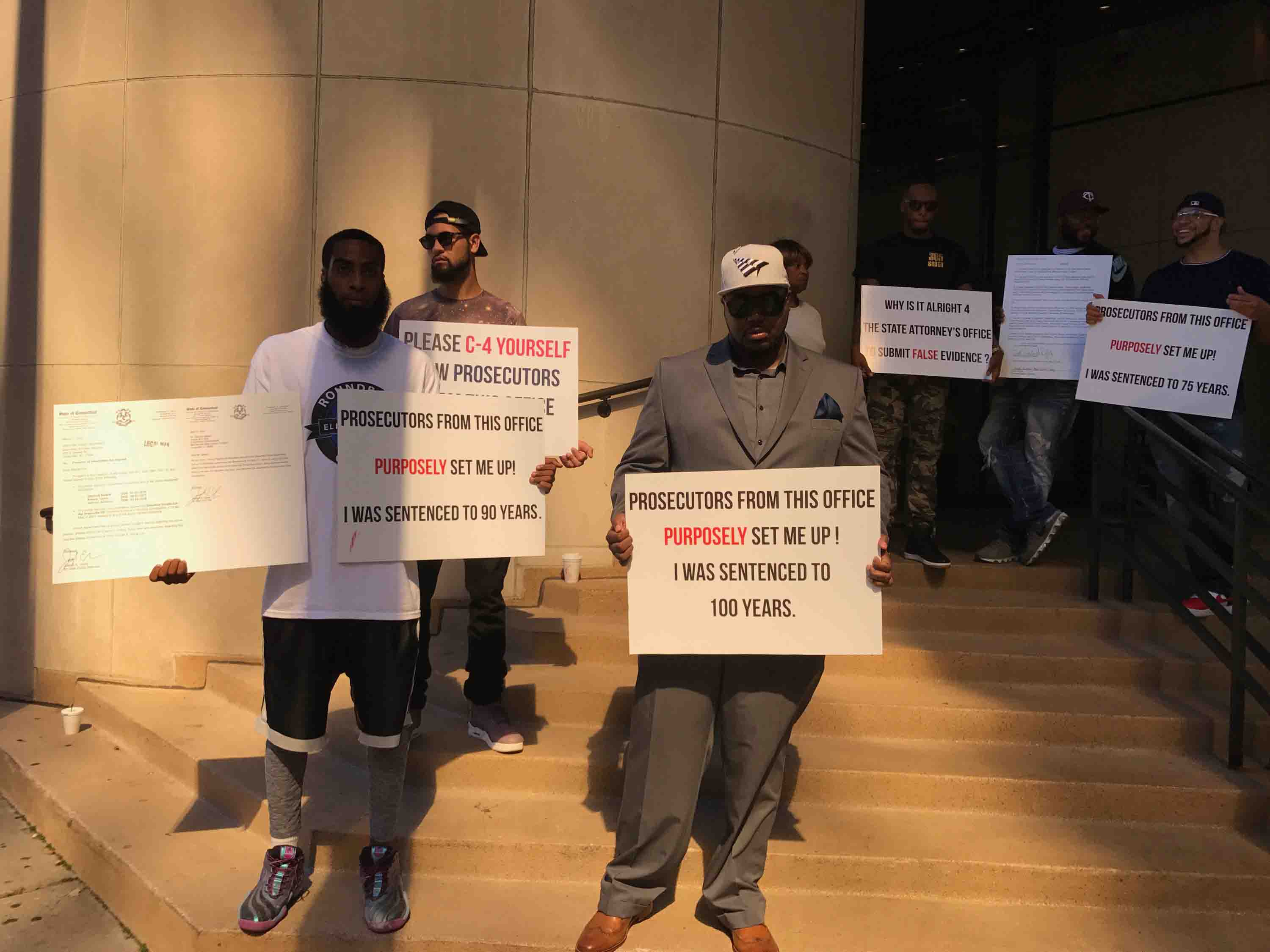
New Haven residents who were convicted of murder and later exonerated in the mid-2000s protested outside the New Haven state’s attorney’s office last Wednesday, alleging that corruption led to their wrongful convictions.
Joined by friends and family, the four men — Darcus Henry, Carlos Ashe, Johnny Johnson and Sean Adams — protested outside the state’s attorney’s office in New Haven on Sept. 27. The goal of the protest, Henry told the News, was to prevent wrongful convictions in the future by prompting a federal investigation into the activities of the state’s attorney’s office.
“We want the Department of Justice to conduct an investigation against the shady prosecutors in the New Haven state’s attorney’s office,” he said. “That’s who we really want to be involved. The office is getting away with crime. I was sentenced to 100 years in prison for a crime I didn’t commit.”
The state’s attorney office deferred comment to its NHV branch. The New Haven state’s attorney’s office did not return multiple requests for comment.
Henry, Ashe, Johnson and Adams were sentenced in 1999 to a collective 365 years in prison for a 1996 gang slaying that left one man dead and two gravely injured at the Farnam Court public housing complex. In 2011, the four men were exonerated and, in July 2013, they were released from prison after the Connecticut Supreme Court ruled that misleading testimony by a key witness for the prosecutors may have swayed the jury’s verdict from innocent to guilty.
“They used false testimony against me, knowing that the testimony was false,” Henry said.
The exoneration represented only partial justice, Johnson said, because the prosecution and the prosecutor’s office did not face any repercussions for their alleged misconduct.
Adams said New Haven prosecutors would do anything to get a conviction and do not care about the truth.
Johnson said he has a friend, Gaylord Salters, who has been convicted of assault and faces a similar situation to the one Johnson did.
Salters was convicted of a November 1996 shooting as a member of the Island Brothers, a New Haven street gang. He and other members of the gang were allegedly riding in a vehicle that discharged bullets at a vehicle driven by a rival group, the Ghetto Boys. The Ghetto Boys’ vehicle then crashed, and the driver and passenger sustained injuries.
But in Salter’s appellate court filing, his lawyer argued that the key witness in the case, Kendall Turner, had not been adequately investigated for his own criminal charges.
Now, Henry, Ashe, Johnson and Adams are protesting to bring to light what they see as corrupt practices by prosecutors.
“We have actually seen this happening to a lot of people in jail, we have actually been receiving a lot of letters, phone calls, from people that are incarcerated now who are claiming the same thing,” Henry said.
According to Antonio Lucky, who stood in solidarity with the four protesters, the court system needs to change because Connecticut is an old state and “it contains a lot of history.” People are losing time off their life for something they did not do, Lucky added.
“The years that I spent in prison — I’ll never be able to get those years back,” Henry said. “I just want other people who were falsely accused to get justice as well.”
The four protesters, as well as their family and friends, will protest again at the New Haven State’s Attorney’s office on Oct. 20, the court date for Salters’ appeal.
Jever Mariwala | jever.mariwala@yale.edu







